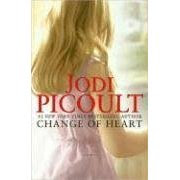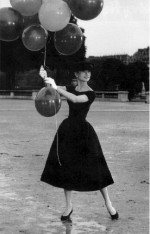
I have mixed feelings about Jodi Picoult.
Everything about her plotlines scream “Ripped from the Headlines!” and “Destined for Bestseller’s Lists and Fiesty Book Club Discussions!” Generally I find this kind of sensationalism and guaranteed popularity to be a turn-off. In fact, if more than two people recommend a book to me I will mentally take it off my must-read list. Of course, this is me being a pain and a booksnob and in no way a sign of discerning taste.
To some extent, Jodi Picoult is formulaic. All of her novels that I have read are Moral Dilemmas, and the plotlines require a bit beyond your normal “willing suspension of disbelief”. She likes multiple narratives that reveal all sides; often the truth is obscured, and you may find yourself sympathetic to an unsympathetic character.
As a result, every time I begin a Jodi Picoult novel, I do so with reservations. And every time I get about halfway through, I look up at the clock and realize that I’ve been reading for three hours straight, and it is too late to start anything decent for dinner.
On Picoult days, we eat pasta for dinner. With a salad on the side.
I read this book in two three-hour sittings, the second session by solar flashlight (it was the evening of Earth Hour). I woke up the next day tired, with a crick in my neck, and very excited to discuss this book with my non-existing blog readers.
The problem with reviewing Change of Heart is, I do so want everyone to read it and enjoy it as much as I did. But I think that to get the full experience, it’s best to walk into it not knowing any relevent plot points.
So I’m not telling you anything about the book’s plot or characters. Instead I’ll tell you what I thought of it, and what I took away from it. Hence: Book Rant and not Book Review.
Interestingly, I don’t really feel the plot or the characters are this novel’s greatest strengths. That designation goes to Picoult’s ability to force the reader to ask themselves difficult questions. Specifically, the Picoult formula provokes these questions:
- Who do I believe?
- Where do my sympathies lie?
- What would I do in this situation?
The beginning of the novel is highly reminiscent of Stephen King’s The Green Mile, almost plagiaristically so. The fact that Picoult refers to this similarity within the dialogue (“Hey, Green Mile,” he yelled as he was wheeled off the tier, “how come you didn’t save me?”) does not excuse it. If you are familiar with The Green Mile (and if you are not, you should definitely put the movie on your Netflix list), then you will be unsurprised that this novel also delves into a bit of mysticism.
Change of Heart relies heavily on Picoult’s interpretation of a series of accounts of Jesus’ life, called the gnostic gospels. For me, this is what really made the novel worth reading.
A happy digression into the nature of the gnostic gospels:
These scrolls were discovered in 1945 in Upper Egypt. They were found to be contemporaries of the texts we find in the New Testament, and contain many of the same sayings and events of the New Testament gospels, but within a different context.
- So, our first interesting insight: Some editing took place when compiling the works that made up the New Testament. What else was left out? On what criteria were these works selected or not selected? How much of each is true?
Gnosis is a Greek term meaning “knowledge”; at the core of Jesus’ message in the Gnostic gospels is man’s capacity within their lifetime to achieve self-knowledge, insight, to find God within one’s own self. When this insight is achieved, we are the same as Jesus. We are divine.
- Interesting insight #2: This sounds a lot like Buddha finding Enlightment under his lotus tree. I like it when religious and spiritual philosophies overlap like this. It makes everything seem a lot more like an natural conclusion.
Naturally, the Catholic Church dismissed this as heresy. The Church teaches us that God is “other”. The nature of original sin ensures that we will always be less than God and the best we can hope for is divine intervention and forgiveness. Jesus, as son of God, was also “other”. He was born without original sin to save us.
- Why all this need for “other”? Is it to create a need for guidance, for saving? When we are taught that life is the greatest miracle, doesn’t it make sense to examine our own lives for signs of divinity and redemption?
The New Testament was holy propaganda, crafted for the purpose of conversion, as were many of Catholicism’s central Holy Days. It is no coincidence that Easter and Christmas fall so near to the summer and winter solstice; all the easier to assimilate those pagans. This was the work of Paul, converting the masses with all the religious fervor of a converted zealot. Paul was not only not one of the twelve apostles chosen by Jesus to be “fishers of men”, but did not even know the man. And yet one could argue that he built the Church as we know it today.
Matthew, Mark, Luke and John- the personal accounts, or gospels- had not yet been written when Paul was doing all this converting. What did Paul even know about Jesus and his message? How did he hear it? Did the version of Christianity he was preaching dovetail with the actual preachings of Jesus?
And yet, of the 27 books in the New Testament, thirteen of those attribute authorship to Paul!
Why didn’t Sister Roseann mention any of this in first-period Religion class?
Please note, I am not knocking Christianity. I was born and raised Catholic. (My mother was a converted Buddhist and was fierce about Catholicism. My father was a practicing Catholic with Buddhist leanings. I like to pick and choose; I think what bother people is that I think I’m allowed to.)
I have a healthy interest in religion, how it affects people, how it is shaped by the culture it is born into, how it evolves over time; to the point where I took a class on The History of Christianity that met twice a week for three hours a class. Much of what I’ve discussed here is coming from my notes from that class ( I knew it would come in handy someday! Totally worth hanging onto for ten years).
- A quick digression-within-a-digression: Belief and religion are not the same thing. Think about it this way: Religion is like a car. I choose a model based on how I drive, how much, the extent I value safety vs. speed vs. cost. Some people arrive at the same conclusions I do and buy the same car. But ultimately it’s just a vehicle to get me where I need to go.
I think it’s important to question. I think it’s important to know about other religions, other forms of belief. We need to question and do research, if only to force us to clarify what we think we believe, hold that against how we live our life, and adjust either our beliefs or our actions accordingly. If life is our greatest miracle, then we need to really live it.
How do we do that? By not accepting without question the beliefs handed down to us, by our families or our region or our church. We use that as a starting point, as a foundation. We look for evidence. We look at the lives we’ve lived so far. We think to ourselves, Why am I here? Seriously, all joking aside, how often do we think, Why was I put here, on this earth? But if you don’t ask that question- again, with utmost seriousness- then you’re not living. You’re sleepwalking. Getting through today to get to tomorrow, over and over, until it’s over.
As Henry David Thoreau so elegantly puts it:
Always promising to pay, promising to pay, tomorrow,
and dying today.
Another application of this particular idea, I think, is when Jesus says in Matthew 18:3,
Verily I say unto you,
Except ye be converted, and become as little children, ye shall not enter into the kingdom of heaven.
Children have no sense of tomorrow and only a vague sense of yesterday. Children are mostly about right now.
When we fix our beliefs firmly in our minds, and consciously apply those beliefs to our actions; when we stop living for tomorrow and instead look at our lives as a series of right nows; when every action consciously reflects what we believe, that’s living.
- So now, an interesting line of thought, one that I’m not really going to get into: if everyone lived their lives this way, would we all be better people? If everyone took some time to put their beliefs under intense self-scrutiny, does it necessarily follow that everyone would act in a way that would be commonly thought of as “good”? Are there people who really, at their core, believe in things that are “bad” or “evil”? How much of our lives are coincidence? How much is Fate?
But wait, you say. I didn’t sign on for this. I wanted to hear a Jodi Picoult story. Instead I get a dissertation on gnosticism and all this nonsense about the meaning of life and measures of goodness. I’m not sure whether I’m inspired or bored.
And that, dear reader, is exactly what reading “Change of Heart” is like.
Remember our Picoult formula questions?
- Who (or what) do I believe?
- Where do my sympathies lie?
- What would I do in this situation?
I think we would do well to ask ourselves these questions all the time.
I think that if you got this far through my rant, you should definitely read the book.











Leave a Reply